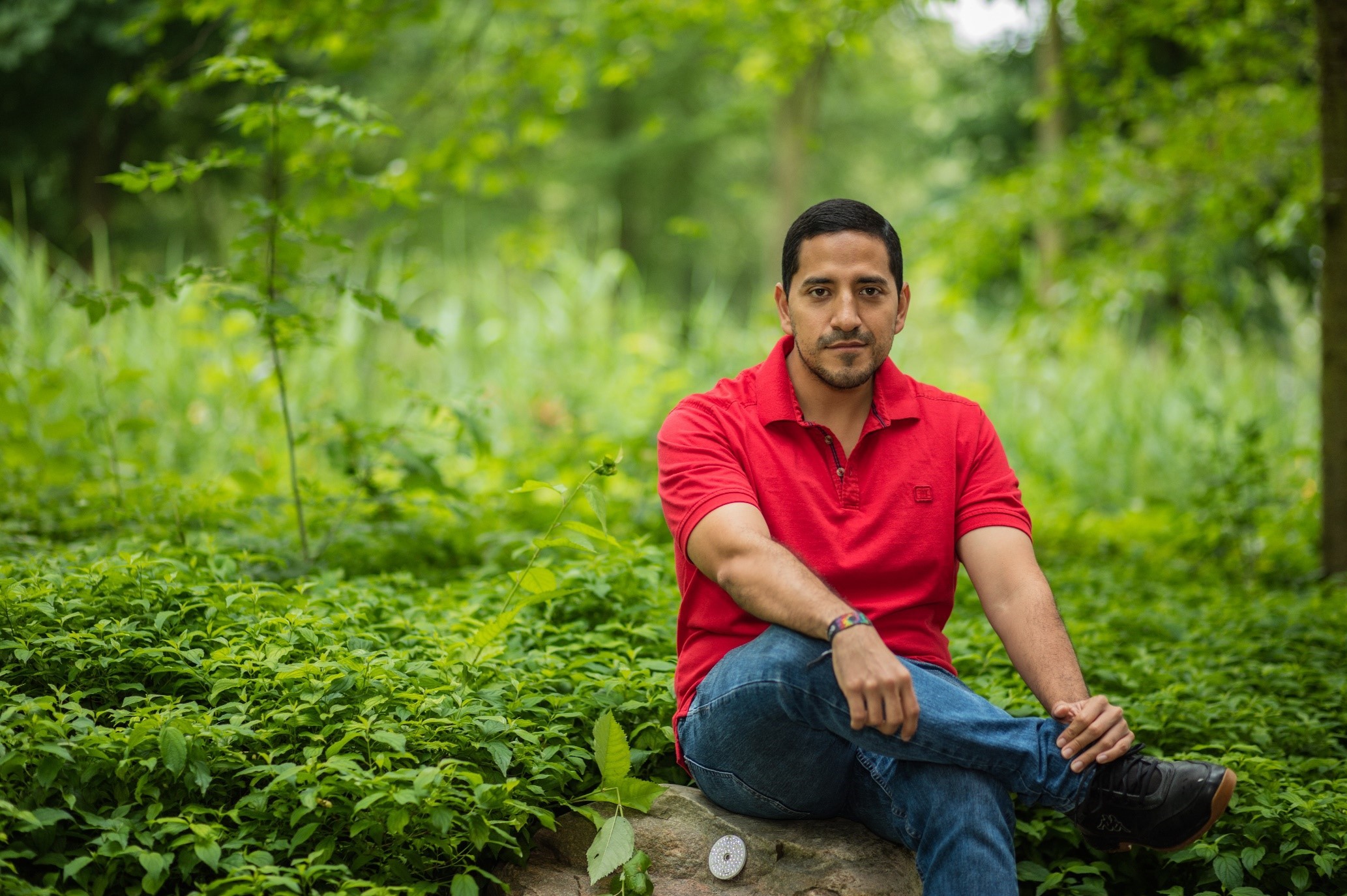How can business models help smallholder farmers adopt sustainable irrigation technologies? Juan Carlo Intriago Zambrano hopes his research makes a difference.
Juan Carlo Intriago Zambrano: “For a small farmer facing financial limitations or a lack of information, it may be difficult to adopt a new water pump, something completely unfamiliar.”
“When I finished my bachelor’s in architecture in 2007 back in Ecuador, I promised myself not to study any more. Then I started working, but things didn’t go as planned. Sometimes you just have to go with the flow so I switched my career from architecture to environmental management. I ended up in a dead end, a place in which I had neither enough expertise in architecture nor an academic background in environmental management. This is rather problematic in a job market like the Ecuadorian one.
My way of escaping that situation was getting a scholarship and doing a master’s. I went to Wageningen University where I studied urban environmental management. When I finished my master’s, I was intrigued by water related affairs, particularly regarding informal irrigation practices in the Global South. I went back to Ecuador with that in my head. But I wasn’t happy and couldn’t find a suitable job. I saw this PhD vacancy at TU Delft and I thought maybe it was too technical for me, maybe my background was not suitable for the position but I decided to give it a try. I applied thinking I wouldn’t get it, but in the end I made it.
I am studying how innovative business models influence the effective adoption of sustainable irrigation technologies for small farmers. So, what does that mean? I like to use the example of a smartphone. When you’re choosing a smart phone, you have to consider many factors. It varies from person to person; it depends on your purchasing power and on what you are expecting from that phone. Even though it might seem straightforward, each person considers his or her own way of analysing the factors and finally making a decision. When we buy a smartphone, the company offers different models, different prices, and different plans. They come with a range of services.
‘I’m shifting from the fun phase to the hectic phase’
For a small farmer facing so many restrictions, particularly financial limitations or lack of access to information, it may be difficult to adopt a new water pump, something that is completely unfamiliar. Why not apply a similar strategy in which the retailer or the agribusiness offers not only a device to be sold upfront, but rather a package, a bundle of products and services? The idea of this project is thus thinking of business models that can cater to farmers’ needs in a better way, considering their financial, agricultural, and social conditions.
The research is based on Nepal and Indonesia where the focus of the technological core of our study has been deployed. It’s a water wheel hydro-powered pump called the Barsha pump. It’s being used and commercialised in these places so they were the perfect locations to study what’s happening there with the people.
Alongside my project, we applied to a fund at TU Delft | Global Initiative and we started a project with student assistants called ‘Clean energy-based smallholder pump irrigation: a toolkit for users and practitioners’. The idea is that the knowledge gained should not just remain part of a dissertation. We want to create something in the form of tools for lay users, something useful. We want to translate the scientific knowledge into something that can be put into practical terms for different audiences.
I recently finished my third year so in theory I’m starting to wrap everything up. To put it in a funny manner, I’m shifting from the fun phase to the hectic phase. But I have to say that the last three years have been one of the happiest times of my life. Usually, a PhD is something that people refer to as a painful process that can be demotivating, but for me it has been completely the opposite. It has been so exciting traveling, meeting people from around the world, facing challenging moments, and learning and growing as a person. That is something that is priceless.”
Want to be featured in Humans of TU Delft? Or do you know someone with a good story to tell? Send us an e-mail at humansoftudelft@gmail.com
Heather Montague / Freelance writer



Comments are closed.